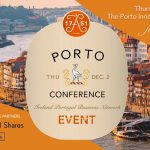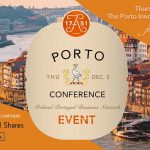António Mendonça at ICPT
A former transport minister under the José Sócrates government which ran until 2011 who is currently a candidate to lead the Portuguese Association of Economists, will address the International Club of Portugal on Wednesday 17 November in Lisbon at the Sheraton Hotel & Spa.
António Mendonça who believes that the association need to open up and start making sense to people while bringing in more members says without new blood it may as well “shut up shop”.
The former minister who was to have executed Portugal’s TGV programme and high-speed freight links from the port of Sines to Spain before the project was shelved when the Government ran out of money in 2011when Portugal faced an economic recession, regrets the absence of the association during the current crisis and calls for its representation at a much higher level.
The economist and university professor says he wants the association to represent a professional class that today is very diversified with macro-economists, company economists, specialists in financial issues and that the association need to know how to work with such diversity.
The first main challenge, he says, it to know how to relate to economists, to value their profession, that they are recognised by society and that society needs to understand that becoming an economist is not something within just anybody’s reach.
“It has to be a person who is trained, competent, accurate, with a sense of ethics in exercising their profession and responsibilities and the association has a very important role to play in the relationship between economists and society in the sense of putting their skills and knowledge at the service of society”, he explains.
Mendonça says that Portugal is facing very important challenges which economists are called upon to find solutions and answers.
“All of us know that we suffered a string of very bad economic events beginning with the crisis from 2008-2009 — and then the sovereign debt crisis which affected Portugal in 2011 – and when that crisis had not totally bee overcome, the Covid-19 crisis occurred with Portugal facing a immense challenge for economic recovery.”
António Mendonça also points out that Portugal has been suffering from anaemic growth for two to three decades, its economy diverges from the European Union and challenges that are not only about economic recovery but changing the structural bases of Portugal’s economic model to enable the country to recover and grow in a sustainable manner.










